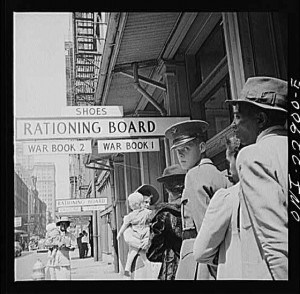Today should be your last day for doing business with AT&T’s DSL and U-verse services. If you feel strongly about your broadband usage being counted and limited, it’s time to bail out of AT&T’s Internet Overcharging scheme, which took effect earlier today.
From this day forward, AT&T DSL customers are limited to 150GB of usage and U-verse customers top out at 250GB before the overlimit fee kicks in — $10 for every 50GB customers exceed the cap, billed in $10 increments. It’s classic AT&T Math, where $1.01 of usage is rounded up to $10.00.
AT&T certainly got off on the wrong foot on day one. We’ve received more than a dozen messages today from customers who find AT&T’s usage meter offline, showing this message:
“We’re sorry, but we’re unable to display your Internet usage at this time.”
Do you think AT&T would accept that excuse if you enclosed a note telling AT&T you are unable to pay your Internet bill at this time?
On an ongoing basis, we intend to hold AT&T’s feet to the fire until they rescind this unwarranted overcharging scheme. While company officials claim it is intended to protect their customers from a handful of “heavy users,” they also argue they have plenty of capacity for everyone. The company cannot have it both ways.
Therefore, this week’s message to be shared with your friends and family is:
AT&T’s Broadband Network Is Not Good Enough to Handle Your Broadband Needs: Shop Elsewhere
AT&T’s wired broadband network, just like their bottom-rated wireless service, cannot handle their customers’ broadband needs. The company proved that today by having to introduce a broadband rationing scheme, limiting customer usage. Despite being America’s largest telephone company ISP, AT&T apparently cannot handle the traffic, telling DSL customers to lay off after 150GB and their “advanced” U-verse network customers to get offline after 250GB of use. Evidently the company isn’t willing to invest some of their enormous profits to provide an ongoing level of broadband service their customers deserve to get, especially when compared with their closest cousin: Verizon.
“While Verizon is installing fiber optics to many of their customers’ homes and providing unlimited, blazing fast Internet service, AT&T admits through their own actions their network isn’t good enough to provide that same level of service to their customers — so now they are limiting the use of it,” says Phillip Dampier, editor at consumer group Stop the Cap! “If I was an AT&T customer, I’d shop around for an alternative provider that has a network robust enough to actually deliver the service customers pay good money to receive.”
AT&T’s U-verse service was touted to customers as delivering a next generation of broadband and television service that could provide healthy competition to cable television.
“AT&T wants U-verse to compete with the big cable companies, but usage caps tell us they can’t manage to do that,” Dampier says. “If their network is so great, why do they need to slap limits on customers?”
AT&T’s representatives claim the limits are intended to reduce congestion from a handful of heavy users, a claim that does not make sense to Stop the Cap!
“AT&T’s existing terms and conditions allow them to deal with any customers who create problems for other users on their network,” Dampier said. “Instead of expanding capacity or dealing with the so-called ‘handful’ of troublesome users, they have slapped an Internet Overcharging scheme on all of their customers.”
Stop the Cap! points out the irony AT&T has plenty of capacity for hundreds of television channels, but doesn’t have enough capacity to provide a worry-free High Speed Internet experience.
“AT&T’s U-verse has no problems finding space for more shopping channels, foreign language networks, and niche channels, but can’t find their way clear to leave customers’ unlimited Internet accounts alone,” Dampier adds. “Their priorities are all wrong — giving you channels you didn’t ask for while taking away the service you do want.”


 Subscribe
Subscribe






